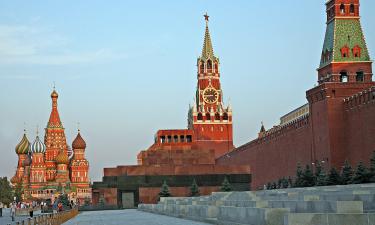China promises not to become threat to other countries
The Chinese government, responding to doubts in the United States and neighboring Asian countries, made what it called a "solemn promise" Thursday that its growing power will never become a threat to other nations.Instead, the government said in a foreign relations white paper, China's swift economic development over the past 25 years has created a lucrative market of 1.3 billion people for businesses around the world and a source of cheap manufactured goods for U.S., European and other consumers. Everyone, including China, has an interest in keeping this peaceful trade going, the paper said.
The declaration, one of a series outlining Beijing's major policies, seemed designed in part to counter suggestions in Washington and elsewhere that China's continued expansion economically, diplomatically and militarily makes conflict more likely. That is a mistaken view, it said, because China needs foreign trade, and thus peaceful international relations, to achieve its goal of economic progress at home.
"To stick to the road of peaceful development is the inevitable way for China to attain national prosperity and strength and its people's happiness," said the document, which was issued by Premier Wen Jiabao's State Council, or cabinet. It added: "China's development will never be a threat to anyone."
Specifically, the white paper sought to rebut critics who point to the emergence of Japan as a new economic power in the early 20th century as having helped create the conditions that led to World War II. Some specialists have suggested China's emergence as an Asian power could also lead to disruption because it is bound to change long-existing relationships, particularly the United States' role as dominant military power and security guarantor.
"China's road of peaceful development is a brand-new one for mankind in pursuit of civilization and progress, the inevitable way for China to achieve modernization and a serious choice and solemn promise made by the Chinese government and the Chinese people," the paper said, drawing a distinction between China's rise and that of Japan a generation ago. "China did not seek hegemony in the past, nor does it now, and will not do so in the future when it gets stronger."
The 32-page white paper did not once use the expression "peaceful rise," which previously was the government's standard way to describe growth in Chinese power and influence. According to academic sources with access to thinking in the Communist Party and government, some senior officials felt the word "rise" carried unwelcome, perhaps threatening connotations of an advancing Asian colossus. As a result, "peaceful development" has become the term of art in most official discourse.
Also missing from the document was any mention of Taiwan, which U.S. officials consider among the places most critically affected by China's rising power and its use of growing wealth to finance improvements to the military. China has vowed to re-integrate the self-ruled island into the mainland, by force if necessary, but maintains that this is an internal affair and not part of its foreign relations.
The declaration did not mention any other countries by name, notably Japan, a nation directly affected by China's changing status whose leaders have voiced concern about the Chinese military's advances in recent years, reports the AP. I.L.
Subscribe to Pravda.Ru Telegram channel, Facebook, RSS!





